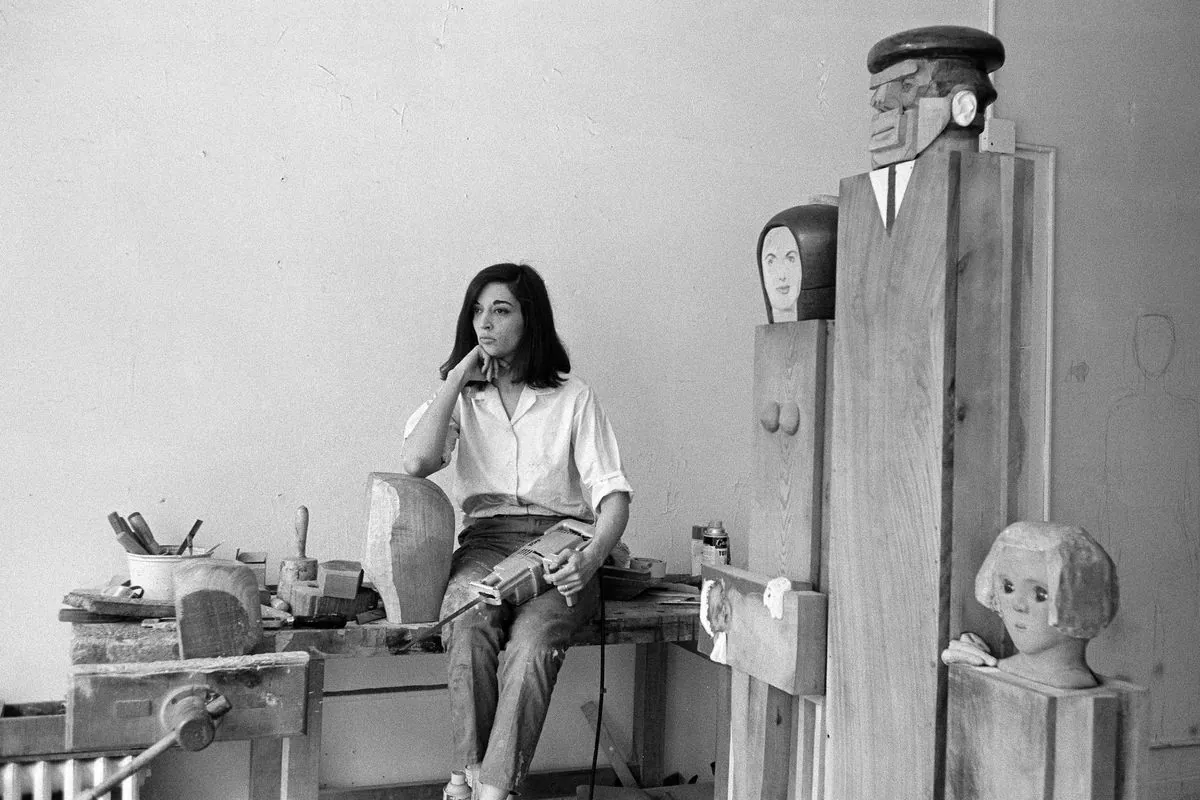The traditional postwar art canon, dominated by male American artists, has long been challenged for its exclusivity. This narrative, focusing on the progression from abstract expressionism to pop art, minimalism, and conceptualism, often overlooked significant contributors, particularly women and artists of color.
Marisol Escobar, known simply as Marisol, emerges as a pivotal figure in reshaping our understanding of postwar art. Born in 1930, the Venezuelan-American artist settled in New York in 1950, quickly establishing herself as a founding figure of pop art by the early 1960s.
Marisol's work stood apart from her contemporaries, offering a more critical and complex perspective on American mass culture. Unlike the often complacent stance of other pop artists, her art was edgier and more troubled, exploring themes of celebrity, identity, and social issues.
Her unique approach combined smooth, geometric forms with crudely carved wood, often incorporating casts of her own face and hands. This technique allowed her to delve into the psychological depths of her subjects, creating works that were both playful and profound.
"The first girl artist with glamour."
Marisol's influence extends to contemporary artists, evident in the work of Nicole Eisenman, Rose Wylie, and Elizabeth Peyton. Her legacy is characterized by a laconic freedom and satirical impulse in addressing social and psychological themes.
The artist's exploration of family dynamics, often through childlike representations, created a tension between whimsy and adult themes. This approach resonates with current artists rebelling against digital culture through handmade, craft-like objects.
Marisol's commitment to environmental and Indigenous issues was ahead of her time, further cementing her importance in the narrative of postwar American art. Her work not only ushered in the pop art revolution but also provided astute responses to private trauma and social upheaval.
As we reassess the postwar art canon, Marisol Escobar's contributions stand out for their formal inventiveness, social consciousness, and enduring influence. Her retrospective, currently at the Buffalo AKG Art Museum until January 6, 2025, offers a timely opportunity to appreciate her significant role in shaping the landscape of American art.
